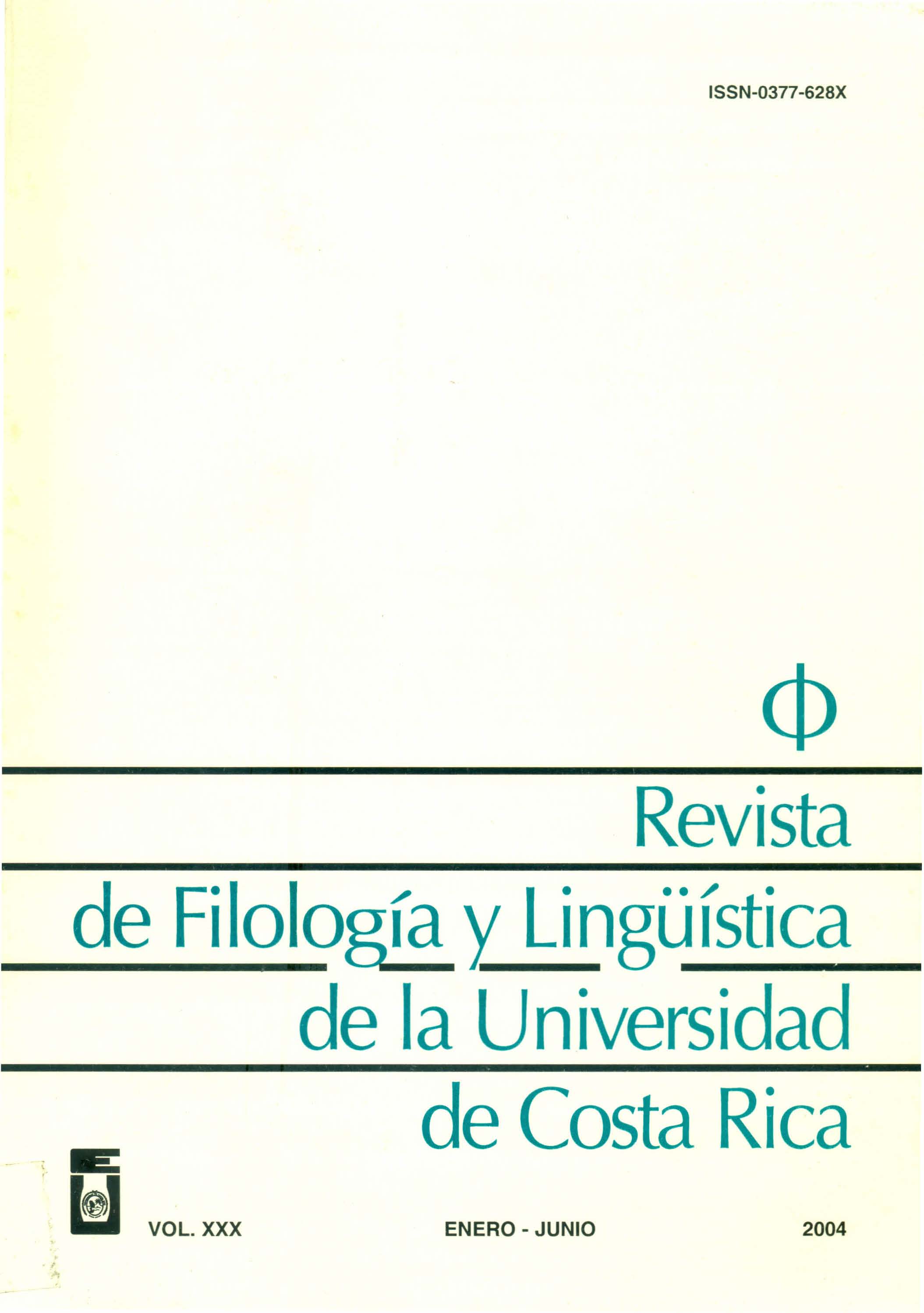Abstract
This is the last of three articles, all of which stemmed from The Process of Female Subject Formation Through Her Sexual Identity, a research project sponsored by the Program of Gender and Identity Issues from the CIICLA, an acronym in Spanish for Center of Research on Latin American Identity, a research center from the University of Costa Rica. This study is meant to analyze the Vagina Monologues and Hombres en escabeche with feminist psychoanalytical theories by Julia Kristeva, Luce Irigaray y Hélène Cixous in order to provide women with a voice.References
Childers, Joseph and Gary Hentzi (eds.). 1995. The Columbia Dictionary of Modern Literary and Cultural Criticism. N.Y.: Columbia University Press.
Cixous, Hélène. 1991. “The Laugh of the Medusa”. En Warhol, Robin R. and Diane Prize Herndl (eds.).
Ensler, Eve. 2001. The Vagina Monologues: The V Day Edition. New York: Villard.
Fe, Marina. 1999. Otramente: lectura y escritura feministas. México: Fondo de Cultura Económica.
Gilbert, Sandra and Susan Gubar. 1991. “Infection in the Sentence: the Woman Writer and Anxiety of Authorship”. En Warhol, Robin R. and Diane Prize Herndl (eds.).
Guerin, Wilfred L. et al. (eds.). 1999. A Handbook of Critical Approaches to Literature. 4th ed. NY: Oxford University Press.
Irigaray, Luce. 1991. “Another ‘Cause’—Castration.” En Warhol, Robin R. and Diane Prize Herndl (eds.).
(1998). Ser dos. Buenos Aires; Barcelona; México: Paidós.
(1991). “This Sex Which is Not One”. En Warhol, R. and Diane Prize Herndl (eds.).
Istarú, Ana. 2001. Baby Boom en el paraíso/Hombres en escabeche. San José: Editorial Costa Rica.
Jackson, Stevi (ed.). 1993. Women’s Studies: Essential Readings. New York: New York University Press.
Jones, Ann Rosalind. 1991. “Writing the Body: Toward an Understanding of l’ecriture feminine.” En Robin R. Warhol and Diane Prize Herndl (eds.).
Kristeva, Julia. 1980. Desire in Language: A Semiotic Approach to Literature and Art. Oxford: Blackwell.
Macaya, Emilia. 1992. Cuando estalla el silencio: para una lectura femenina de textos hispánicos. San José: Editorial de la Universidad de Costa Rica.
Martin, Emily. 1993. “The Woman in the Body”. En Jackson, Stevi (ed.). New York: New York University Press.
Warhol, Robin R. and Diane Prize Herndl (eds.). 1991. Feminisms: An Anthology of Literary Theory and Criticism. New Brunswick, N.J.: Rutgers.
Sitios
Elam, Diane. 1997. “Feminist Theory and Criticism: Poststructuralist Feminisms”. The John Hopkins Guide to Literary Theory and Criticism. Michael Groden and Martin Kreiswirth (eds.). www.press.jhu.edu
Klages, Mary. 2001. Poststructuralist Feminist Theory, Hélène Cixous: The Laugh of the Medusa. Conferencia. Department of English, University of Colorado at Boulder. http://www.colorado.edu/English/engl2010mk/cixous.lec.html
oct. 2001. Poststructuralist Feminist Theory, Luce Irigaray: This Sex Which is Not One. Conferencia. Department of English, University of Colorado at Boulder. http://www.colorado.edu/English/engl2010mk/irigaray.lecture.html
O’Grady, Kathleen. 1996. Guardian of Language: An Interview with Hélène Cixous. http://www.english.ucsb.edu/faculty/ayliu/research/grady-cixous.html
Oliver, Kelly. “Kristeva and Feminism”. Feminist Theory Website. Center for Digital Discourse and Culture at Virginia Tech University. www.cddc.vt.edu/feminism/Kristeva.html
Zivancevici, Nina. 2001. “An Interview with Julia Kristeva.” NY Arts Magazine. (March- April). http://nyartsmagazine.com/57/juliakristeva.html

